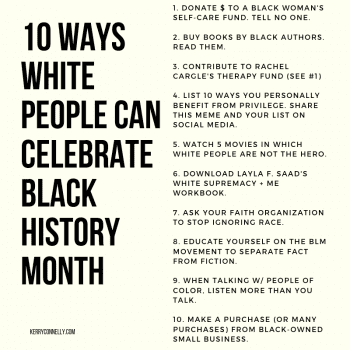For a long time, I thought the apostle Paul was a jerk.
I remember I said that to an Evangelical pastor once, and I thought his eyes were going to pop out of his head, right there in front of me. After all, Paul is pretty much like the Evangelical pope, albeit a dead one, and sometimes I confess to being a little uncomfortable with the way he seems to be elevated to a prominence that seems equal to that of Jesus. If Paul says it, it must be true, sort of like the interwebs.
Oh boy. Everyone’s going to get into a tizzy now because infallibility of scripture, blah blah blah.
What I mean is, there is only one Jesus, one God who got dressed up as a human. There is only one savior of the world, and he lived a life that pours beauty over me to cover my ugliness, that cleanses me where I am filthy, and that subverts every hierarchy that I like to keep comfortably in place to secure my position in life.
At first glance, Paul seems to be all about hierarchies, though. At the very least, Paul seems to support and perpetuate them. Let’s face it — here in America, it’s easy to read Paul if you’re a white man. The rest of us might get a tad bit tense, what with all the telling us to shut up, sit down, and be complicit in our own oppression. After all — it’s Paul, not Jesus, whose words have been used to keep women from leadership positions in both church and marriage, to justify moral travesties like slavery and racism, and even to kick LGBTQ people out of Christian conventions.
(I don’t remember Jesus kicking anyone out of anywhere, do you? The money changers, maybe, but I think he just wanted their tables gone from the temple. I think he wanted the people themselves to stay — if they were willing to do so without their cash cows. Or cash doves, as it were.)
Paul is also like a really bad mother-in-law, telling us everything we’re doing wrong, and pointing out how much better than us he is at all this being godly stuff. He is full of bluster and he is kind of bossy to boot. If you’re a white American male pastor, he might be a good read, but for the rest of us, it feels like we just ran into that really annoying guy at work who thinks he’s better than everybody else at everything. The type of guy who, when you tell him about some guy who thinks he’s better than everybody else at everything, says, “Oh, I know someone like that. I hate that.”
I know there are other readings of Paul. I know that all this is a very topical glance at the man that Paul was, and that in many ways, Paul was, like Jesus, a radical subversive, turning the tables on many of the social mores held dear by the power structures of the day. I know that much of the problem I have with Paul comes from the way he’s been read and interpreted — used like a weapon against people who are not at the top of the privilege heap — and not by what he most likely was actually saying.
The older I get, though, the more I relate to Paul’s inner jerk. First of all, he’s ridiculously sarcastic, and being from New Jersey, I find this highly endearing. I see myself in his passionate, emotional ups and downs, and in his utter frustrations with the people around him. I relate to the writer in him — the one who needs to get it all out onto papyrus (or whatever they used back then) and maybe who forgets to use his inner filter.
Last night, I got a fresh wave of perspective on Paul — and I’m talking a personal perspective, not a theological one. I am reading Anne Lamott’s Hallelujah Anway, and in it she talks about the thorn in Paul’s side in 2 Corinthians, and she connects it with the things he does that he does not want to do in Romans. For the first time, I started to understand that Paul’s struggle may very well be much like mine — not some theoretical, holier-than-thou construct, but a real flaw that kept him enslaved and in bondage.
I’d always imagined the thorn in Paul’s side to be some sort of physical limitation. A limp, perhaps. Or bad eyesight, after his first Jesus experience, when those weird things like scales fell from his eyes. I never thought of the thorn in his side being a character flaw, something that he hated about himself, a thing he swore each day he would not do, only to find himself smack in the middle of doing it.
Maybe he had a sexual attraction to someone he shouldn’t have, and couldn’t stop thinking about that person. Maybe he gathered hatred in his heart like poison berries from a bush, or couldn’t get past making racially biased assumptions about Samaritan people. Perhaps, like me, he swore off M&Ms thrice daily only to find his head buried in a bag of the things just before bedtime, night after craving-riddled night. Perhaps his self-talk was filled with hateful rhetoric and curse words, a vicious cycle of not living up to the law he held so high.
Suddenly, I started to like Paul even more than I did on the day I found out he cursed in the Bible.
I never really understood what it meant when God told Paul, “My grace and mercy will have to be enough for you.” But as I read Anne’s book — a book about rediscovering mercy — I had a flash of understanding. Maybe what God was saying is, “Even when you’re a jerk, my grace is still here for you, and my mercy is still sufficient to cover you.”
“When other people reject a core part of your identity, until you hate yourself and wish that precious part of you could be ripped out of your very center, my grace is still here for you, and my mercy will love you even when you hate yourself, even when they kick you out of conventions.”
“Even when you have your face in a bag of M&Ms, or you drop F-bombs in church (when you actually go to church), and when you lick that grudge against your brother like a pearl, my grace is still here for you, and my mercy still covers you.”
It’s hard to be a leader; it’s hard to be a writer of thoughts. When you decide to take your inner most thoughts and write them down, and then send them to the world on papyrus or a blog, all sorts of people have their own ideas about you, about your worthiness, your rightness, heck, even your “authority” to have an opinion will be questioned (well, not if you’re a straight, white, cis-gendered American male. Then your authority is automatic, your agency secure. But we pesky women bloggers, boy. We need to get some authority before our words can matter.
Oh, how I wish I had access to an eye roll emoji right now.)
Though his integrity was ultimately ruthlessly defended by those powerful men who canonized his work and called others heretical, I’m sure Paul suffered when his integrity and authority was questioned by those he cared for. I bet that felt pretty crappy, but that’s not what makes me like him.
What makes me like him is that this Paul, this writer of words, this Jesus Freak, this really annoying, jerky guy — he had something about himself he hated. And time after glorious time, he had to call down the grace of God just to bear it. He had to make use of God’s mercy, which is there for the taking.
It’s there for the taking for all of us — but I know I often forget. I forget to make use of God’s mercy for myself, and I forget to make use of God’s mercy for others. I’ve even, dare I say it, forgotten to make use of God’s mercy for Paul.
This gives me hope, wispy thing that hope is. If I can forgive Paul for being a primary source of the patriarchy that provides my oppression (and trust me when I say that I know my oppression is pretty damn cushy compared to the oppression of others), if I can make use of God’s mercy for that, maybe, too, I can find my way back to church.
Maybe I can fall in love with Christianity again. (I’ve never fallen out of love with Jesus. I am mad crazy in love with Jesus.)
If I can make use of this mercy, let it be sufficient, I can stop trying so hard and just rest in what Jesus has already done. I think maybe this is what Jesus meant when he spoke of freedom — this liberation from having to try so hard to like people who annoy us. Instead, we can just love them enough to have mercy for them, even when they’re really, really big jerks.
Even when they post things on Facebook that say I’m going to hell because of who I voted for.
Even when they write in holy scripture that because I was born a girl I can’t teach men, even when they might have a lot to learn from me.
Even when my brother disowns me because of politics.
Even all these really deep hurts can be bathed in mercy, and I don’t have to do a thing but let it happen.
And the hope comes, then, because even when I plant my face in another bag of M&Ms, or nurture a grudge against my brother, or think hateful thoughts, or yell at my kids when they don’t deserve it, or am a bad friend, or say stupid things, or get wrapped up in anxiety that makes no sense, in panic attacks that wake me up in the middle of the night, tongue swollen, heart racing, hands shaking for no. good. reason. at all — even then. Just mercy, like a waterfall, over my head, washing it all away.
And one thing I know is I am not responsible for is waterfalls, praise Jesus.
I’ll just let that mercy flow, and, if I remember, I’ll grab a bucket.












